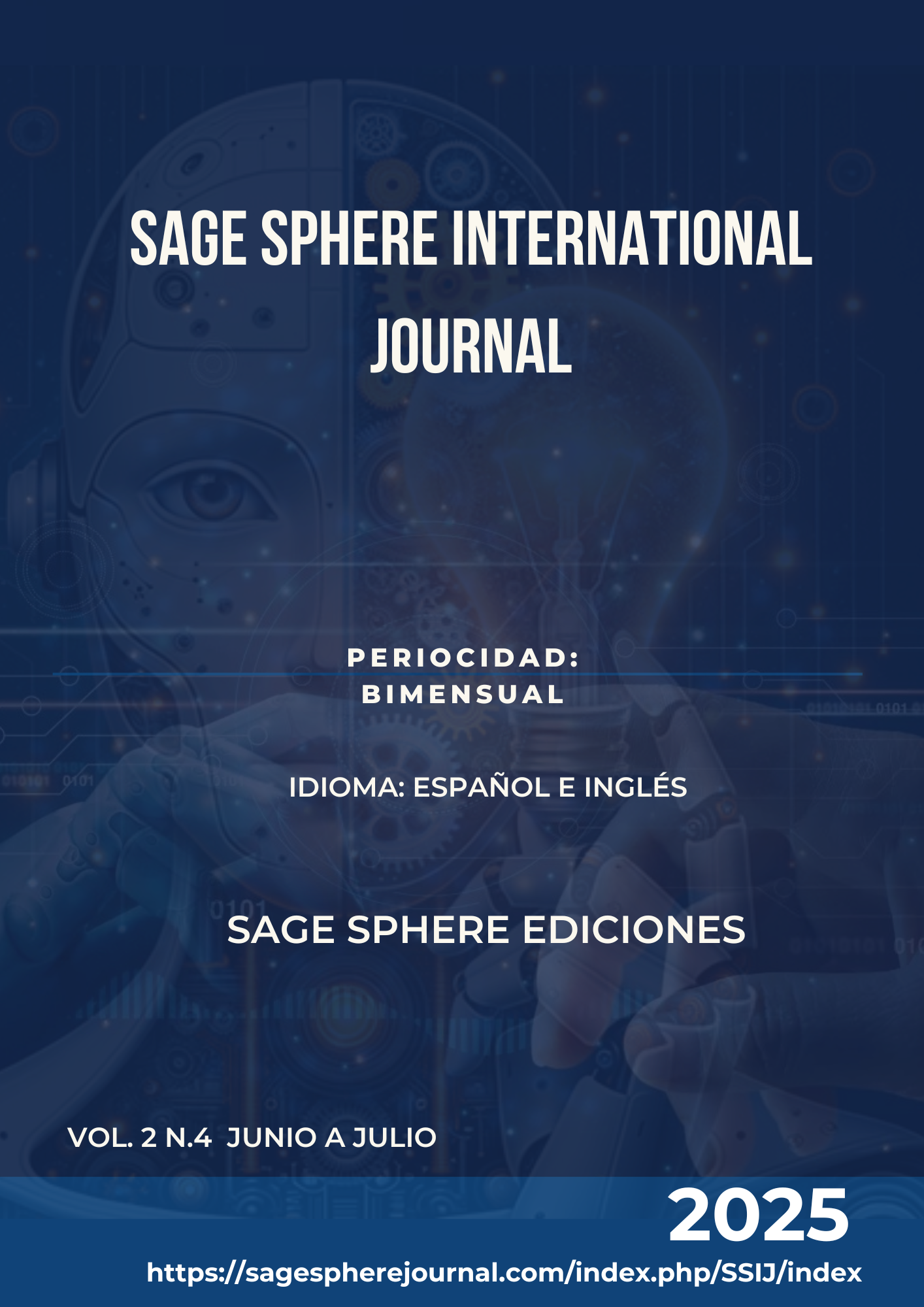Educational assessment: review of alternative models to standardized assessment
DOI:
https://doi.org/10.63688/746pa815Keywords:
Educational assessment, Standardized assessment, Alternative models, Formative assessment, Inclusive assessmentAbstract
Educational assessment is undergoing a transformative process, where alternative models aim to complement and overcome the limitations of standardized evaluation. While standardized tests allow for comparisons at national and international levels, they are limited in reducing learning to quantitative indicators, neglecting essential competencies such as creativity, critical thinking, and problem-solving. In contrast, alternative models, including formative assessment, authentic assessment, competency-based assessment, and inclusive assessment, promote comprehensive learning, active student participation, and contextualized educational processes. The documentary review revealed that the implementation of these strategies enhances feedback, self-regulation, and educational equity, although challenges such as teacher training, adequate resources, and institutional adaptation remain. The findings suggest that educational systems are increasingly adopting hybrid approaches that combine the objectivity of standardized assessments with the depth and flexibility of alternative models. It is concluded that educational assessment should be conceived as a dynamic and transformative process that contributes to the holistic development of students and the continuous improvement of educational quality, fostering meaningful and equitable learning in diverse contexts.
References
Au, W. (2019). Unequal by design: High-stakes testing and the standardization of inequality. Routledge. https://www.taylorfrancis.com/books/mono/10.4324/9781003005179/unequal-design-wayne-au
Black, P., & Wiliam, D. (2018). Inside the black box: Raising standards through classroom assessment. Phi Delta Kappan, 92(1), 81-90. https://doi.org/10.1177/003172171009200119
Booth, T., & Ainscow, M. (2019). Index for inclusion: Developing learning and participation in schools (4th ed.). Centre for Studies on Inclusive Education. https://unesdoc.unesco.org/ark:/48223/pf0000176347
Brookhart, S. M. (2018). How to create and use rubrics for formative assessment and grading. ASCD. https://archive.org/details/howtocreateuseru0000broo
Carrión Arias, N. J., Meza Arguello, D. M., Ramírez Salvatierra, J. E., & Sigcho Ocampo, I. G. (2025). Estudio documental sobre el uso de tic en la educación básica: evolución y tendencias. Sage Sphere Multidisciplinary Studies, 2(1), 1-11. https://doi.org/10.63688/8sgxxv78
Cornejo Solorzano, A. M., Párraga Villavicencio, V. M., Locke García, V. L., & Meza Arguello, D. M. (2025). Competencias digitales docentes: estado actual y perspectivas de formación continua. Journal of Multidisciplinary Novel Journeys & Explorations, 3(1), 1-15. https://doi.org/10.63688/39z9s583
Flick, U. (2018). An introduction to qualitative research (6th ed.). SAGE. https://us.sagepub.com/en-us/nam/an-introduction-to-qualitative-research/book258450
Hernández-Sampieri, R., & Mendoza, C. P. (2018). Metodología de la investigación (6.ª ed.). McGraw-Hill. https://www.mheducation.es/bcv/guide/capitulo/8448167661.pdf
López-Pastor, V. M. (2019). Evaluación formativa y compartida en educación. Revista de Educación, 384, 49–73. https://doi.org/10.4438/1988-592X-RE-2019-384-408
Martínez Rizo, F. (2020). Evaluación educativa en América Latina: tendencias y desafíos. Revista Iberoamericana de Evaluación Educativa, 13(1), 45-62. https://doi.org/10.15366/riee2020.13.1
Meza-Arguello, D. M., Barcia-Cedeño, E. I., Sigcho-Ocampo, M. V., & Carrión Arias, N. J. (2024). El arte de escribir bonito y su impacto en el área de lengua y literatura. Revista Científica Multidisciplinaria Ogma, 3(1), 1-12. https://doi.org/10.69516/b9vm7s92
Meza Arguello, H. L., Eras Briones, V. I., Meza Arguello, D. M., Simisterra Muñoz, J. M., & Franco Valdez, J. L. (2024). Escuela tradicional y escuela nueva: Estudio comparativo. Código Científico Revista De Investigación, 5(1), 838–850. https://doi.org/10.55813/gaea/ccri/v5/n1/410
Meza Arguello, D. M., Bedoya Gutiérrez, A. C., Angulo Quiñónez, O. G., & Montaño Escobar, O. G. (2025). La inclusión en la educación superior desde una perspectiva humanista. Sage Sphere Multidisciplinary Studies, 2(1), 1-12. https://doi.org/10.63688/2etnke68
Muentes Zambrano, J. J., Meza Arguello, D. M., Macías García, C. A., Arguello Dueñas, F. L., & Yucailla Mendoza, A. G. (2024). Estrategias metodológicas para el desarrollo de la comunicación asertiva. Código Científico Revista De Investigación, 5(2), 1837–1848. https://doi.org/10.55813/gaea/ccri/v5/n2/637
Meza Arguello, D. M., Jiménez García, J. F., Moreira Carrasco, M. E., Gudiño Méndez, J. D., & Muentes Zambrano, J. J. (2024). Juego de roles en las clases de estudios sociales . Código Científico Revista De Investigación, 5(1), 851–862. https://doi.org/10.55813/gaea/ccri/v5/n1/411
OECD. (2021). PISA 2021 assessment and analytical framework. OECD Publishing. https://doi.org/10.1787/b25efab8-en
Popham, W. J. (2017). Classroom assessment: What teachers need to know (8th ed.). Pearson.
Stufflebeam, D. L., & Shinkfield, A. J. (2017). Evaluation theory, models, and applications (2nd ed.). Jossey-Bass.
Tobón, S. (2020). Formación integral y evaluación por competencias. ECOE Ediciones. https://ecoeediciones.com/wp-content/uploads/2015/08/Formacion-integral-y-competencias.pdf
Valverde Medina, J. M., Benites Valverde, L. A. ., Valverde Medina, L. M., & Meza Arguello, D. M. . (2025). El uso de las TIC en contextos rurales: barreras, oportunidades y propuestas educativas. Sage Sphere in Artificial Intelligence, 3(1), 1-12. https://doi.org/10.63688/tg4djt53
Wiggins, G. (2018). Educative assessment: Designing assessments to inform and improve student performance (2nd ed.). Jossey-Bass. https://www.amazon.es/Educative-Assessment-Designing-Assessments-Performance/dp/0787908487
Downloads
Published
Issue
Section
License
Copyright (c) 2025 Sujey Lilibeth Tambaco Quintero, Carlota Lissette Rodríguez Paredes, Miryan Verónica Vera Mera, Danny Meliton Meza Arguello (Autor/a)

This work is licensed under a Creative Commons Attribution 4.0 International License.
Los artículos publicados en la revista se distribuyen bajo la licencia Creative Commons Atribución 4.0 Internacional (CC BY 4.0). Esta licencia permite a terceros descargar, copiar, distribuir, adaptar y reutilizar una obra, incluso con fines comerciales, siempre que se otorgue el crédito adecuado al autor original.





